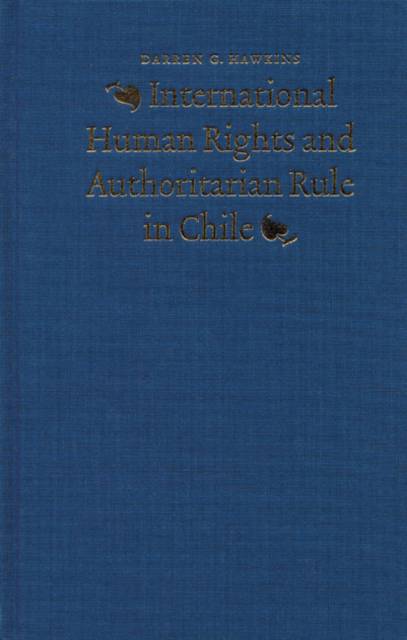
- Afhalen na 1 uur in een winkel met voorraad
- Gratis thuislevering in België vanaf € 30
- Ruim aanbod met 7 miljoen producten
- Afhalen na 1 uur in een winkel met voorraad
- Gratis thuislevering in België vanaf € 30
- Ruim aanbod met 7 miljoen producten
Omschrijving
Darren G. Hawkins argues that steadily mounting pressure from abroad concerning human rights did, in fact, make Pinochet more vulnerable over time and helped stimulate Chile's movement to a liberal democracy. Such international expectations could not be ignored by Pinochet, and they gradually and cumulatively made themselves felt. By 1975 some Chilean officials were adopting the discourse of human rights and claiming their adherence to international norms; two years later the government's security apparatus responsible for the reign of terror was reorganized, and disappearances in Chile nearly ceased. In 1980 the regime abandoned its insistence on unlimited authoritarian rule and approved a constitution that set term limits and promised future democratic institutions; Pinochet lost a constitutionally mandated plebiscite in 1988 and ultimately left office in 1990. Hawkins contends that these changes not only were internally driven but reflected an ongoing response to an international discourse on human rights.
Well-researched and cogently argued, this case study further illuminates and complicates our understanding of modern Chilean history and provides ample testimony of the far-reaching effects of international human rights work.
Specificaties
Betrokkenen
- Auteur(s):
- Uitgeverij:
Inhoud
- Aantal bladzijden:
- 261
- Taal:
- Engels
- Reeks:
- Reeksnummer:
- nr. 6
Eigenschappen
- Productcode (EAN):
- 9780803224049
- Verschijningsdatum:
- 1/06/2002
- Uitvoering:
- Hardcover
- Formaat:
- Genaaid
- Afmetingen:
- 154 mm x 235 mm
- Gewicht:
- 521 g

Alleen bij Standaard Boekhandel
Beoordelingen
We publiceren alleen reviews die voldoen aan de voorwaarden voor reviews. Bekijk onze voorwaarden voor reviews.









